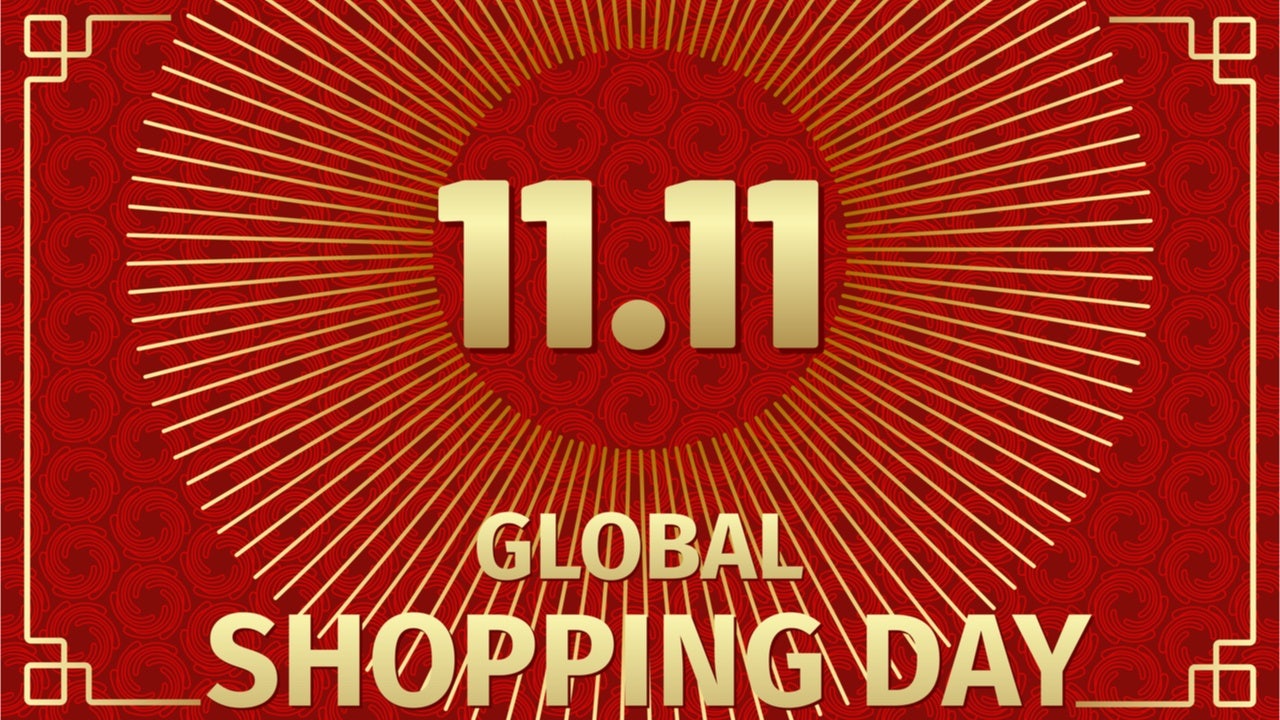Singles’ Day, also known to as 11.11, is the largest e-commerce day in the world. In 2017, gross merchandise value (GMV) accounted for 25.3 billion, while in 2018 Alibaba has reported record sales of more than 30.8 billion in 24 hours. Basically, during the 11.11 shopping extravaganza, Alibaba sold more in one day than other countries have in an entire year. And according to McKinsey, Singles’ Day has exceeded considerably “the overall growth of online retail in China.” However, analysts remarked that the annual growth rate has declined from 36% in 2017 to 27% in 2018. Basically, despite strong sales and robust revenue growth, the stakes remain high for Alibaba.
In fact, Alibaba’s dependence on Chinese consumers alone can’t keep up with the company’s ambitions of world domination. Jack Ma’s dream of hitting “gross merchandise volume of 1 trillion in the fiscal year that ends March 31, 2020,” and creating 100 million jobs and serving two billion customers can be achieved only by expanding its global footprint. And according to Ad Age, during the 2017 event, Russia, Hong Kong, and the U.S. were the top markets outside mainland China to buy products during Singles’ Day, with bestselling items “mobile phones, wool coats, and knitted sweaters.”
In 2018, 237 brands surpassed “RMB100 million in GMV (roughly 14.2 million), including companies such as Apple, Dyson, Kindle, Estée Lauder, L’Oréal, Nestlé, Gap, Nike, and Adidas,” according to Essential Retail. On the other hand, international brands are tempted by Singles’ Day because they want to reach Chinese consumers and expand their corporate footprint in a market rich with opportunities. Evidently, global brands understand that the participation in Singles’ Day comes with “a billion-dollar sales opportunity.” Consequently, in the past years, the number of Western retailers that have taken part in the event has increased.
As stated by McKinsey, since 2017, Singles’ Day has become a global, multicultural affair as “multinational e-commerce sites offering big discounts and doing heavy promotion for the shopping event” got into the frenzy. Essential Retail reported that during the 2018 Singles’ Day event, over 40% of buyers purchased products from international brands, with Japan, the U.S., South Korea, Australia, and Germany leading the way.
Furthermore, Alibaba entered strategic partnerships with overseas players such as El Corte Inglés, the biggest department store group in Europe, international e-commerce Lazada Group (owned by Alibaba), Singaporean e-commerce platform, Shopee, and the U.S. e-commerce Shopbop. Seeing the global magnitude of Singles’ Day, it’s not surprising that international brands and investors want to win over Chinese consumers through a successful participation in the event. Given this, we’ve compiled a list with winning strategies that every global brand should use for Alibaba’s Singles’ Day.
Pricing strategy#
McKinsey states that during the 2018 Singles’ Day, “The categories with the biggest price cuts were not only among the best sellers, but they also succeeded in driving additional market share.” Furthermore, McKinsey emphasizes that “parent and baby products, with an average discount of 33 percent, captured 18 to 19 percent of category sales in China, versus 6 to 7 percent on a normal day.” Additionally, skin-care and beauty brands, with an average discount of 30 percent, increased their share to 12 to 15 percent, as compared to the usual three to five percent.
However, retail experts highlight that there are differences between shopping in the West and in China. Therefore, coupons, sales, and discounts might not be the only ticket. "America runs on such a price-driven concept in retail, which is what ultimately upholds the whole concept of Black Friday sales. In contrast, China celebrates Singles’ Day with a fun and social experience through games and entertainment,” says Tiffany Lung of the research and tech firm Tofugear. This is an interesting concept as it highlights that a successful pricing strategy doesn’t imply on only big discounts. Actually, foreign sellers can use price anchoring (placing a higher-priced item side-by-side to a lower-priced product) and competitive price comparison to attract Chinese buyers.
Deep niche marketing#
It’s common knowledge that retailers can’t influence consumer behavior without understanding the needs, motivations, and psychological factors behind a buying decision. Therefore, the importance of knowing your customer can’t be downplayed. According to Carla Anderson, Solution Market Director, Oracle Retail, successful retailers “deliver the right product to the right location at the right time” to maintain brand loyalty. Instead of chasing a broader market, successful brands spotlight their niche consumers. This highly focused strategy cuts down costs while increasing community engagement.
Demographic segmentation#
Evidently, Alibaba is set to win the minds of millennials and Gen. Z with Singles’ Day. Every aspect was envisioned to conquer the hearts of this massive group of young, tech-savvy consumers. From the “must buy recommendation list” that was designed to be shared on social media channels, to the use of video games and augmented reality games (Catch the Cat) to the treasure hunts that employ modern technology and the over-the-top two-hours Galas that brings together young artists such as Taylor Swift, the Chinese singer G.E.M, singer-songwriter Hua Chenyu, and Japanese actress Kana Hanazawa. Singles’ Day is made for a young, dynamic audience.
China has over 400 million millennials and they represent a major opportunity for brands. Naturally, Alibaba is betting big on this segment and international brands should follow suit. Additionally, brands shouldn’t ignore the progress made by the middle or “aspirational class.” As stated by McKinsey, “upper middle class will account for 54 percent of urban households and 56 percent of urban private consumption” in China. Equally important, the rise of the “She economy” and the growing purchase power of women has boosted cosmetic and skincare sales. In fact, Estée Lauder was one of the top-performing brands ranking fourth in terms of sales in 2017.
Enhancing the mobile strategy#
Over, 80% of the Singles’ Day sales were made on a mobile device. In today’s modern world, retailers can reach customers faster and in a more convenient way, but buyers are more disengaged and emotionally detached. Therefore, retailers need to enhance the whole shopping experience by employing modern technologies and unique mobile features. Live streaming, interactive games, VR shopping experiences, video marketing, and digital storytelling need to be incorporated in the communications strategy.
It’s safe to say that the world will “continue to see the globalization of Singles’ Day.” Moreover, the Chinese market will continue to lure international brands to Alibaba’s event. But not all Western retailers can adapt to China; thus, some astonishing misses should be expected while more astute global retailers that leverage the power of these strategies will succeed.

